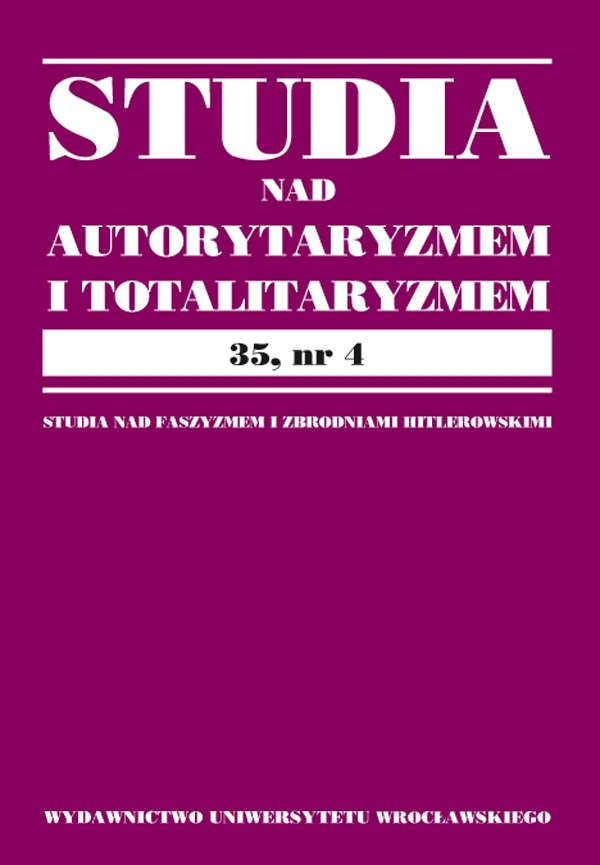

Articles

COUNT ADAM RONIKIER: AGAINST DESPOTISM OF HEROISM
The purpose of this article is to relate doctrinal positions taken by Count Adam Ronikier which were adopted by the Chairman of the Central Welfare Council during the German occupation. Ronikier’s, about whom it can justifiably be claimed that during the night of occupation he made the most significant — of all Poles — contribution to the welfare of the nation, relations with representatives of the Government’s Delegation for Poland remained tense. The aims of the Central Welfare Council — legally bringing help to people suffering and harmed at the hands of the occupying force — conflicted with actions undertaken by the Polish underground state which conducted armed resistance and, by the virtue of this very fact, generated cruel Nazi repressions. Using his relationships with Germans, Ronikier was attempting to mitigate this persecution by directing the activities of the institution he managed in a manner suitable to this purpose. The Chairman of the Central Welfare Council entertained doubts about the sensibility of the armed fight conducted by the Home Army because the losses it generated Germans adopted a barbaric principle of collective responsibility surpassed any benefits derived from it. The Warsaw Insurgency was the culmination of the struggle between the Home Army and Hitlerite Germany. Ronikier adopted an emphatically critical position on the uprising. In his opinion, pointless insurgents’ actions which led to the destruction of the most important city in Poland were also erroneous because they struck at the German occupant at the moment when the latter did no longer constitute a deathly threat to Poland. According to Ronikier, at that time the main danger came from the Soviet Union. The promulgation of such viewpoint caused a number of concerns inside the Polish underground; in particular, its members feared that Ronikier may accept a potential German offer of establishing — at the end of the Second World War — a collaboration government the emergence of which would have been a catastrophic mistake, leading to Poland’s exclusion from the winning coalition. It seems that such fears of the Polish underground’s authorities were not completely unfounded. However, since this did not happen, Count Ronikier, still little known in Poland, remains a symbol of a struggle to preserve the biological substance of the Polish nation after the calamitous defeat of September of 1939.